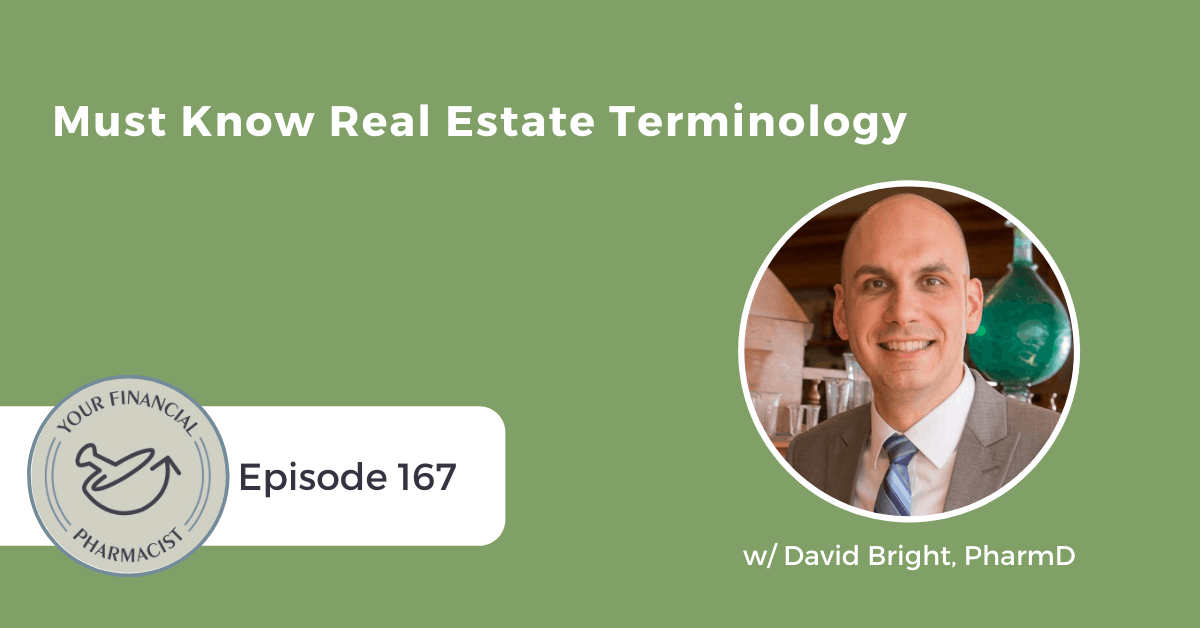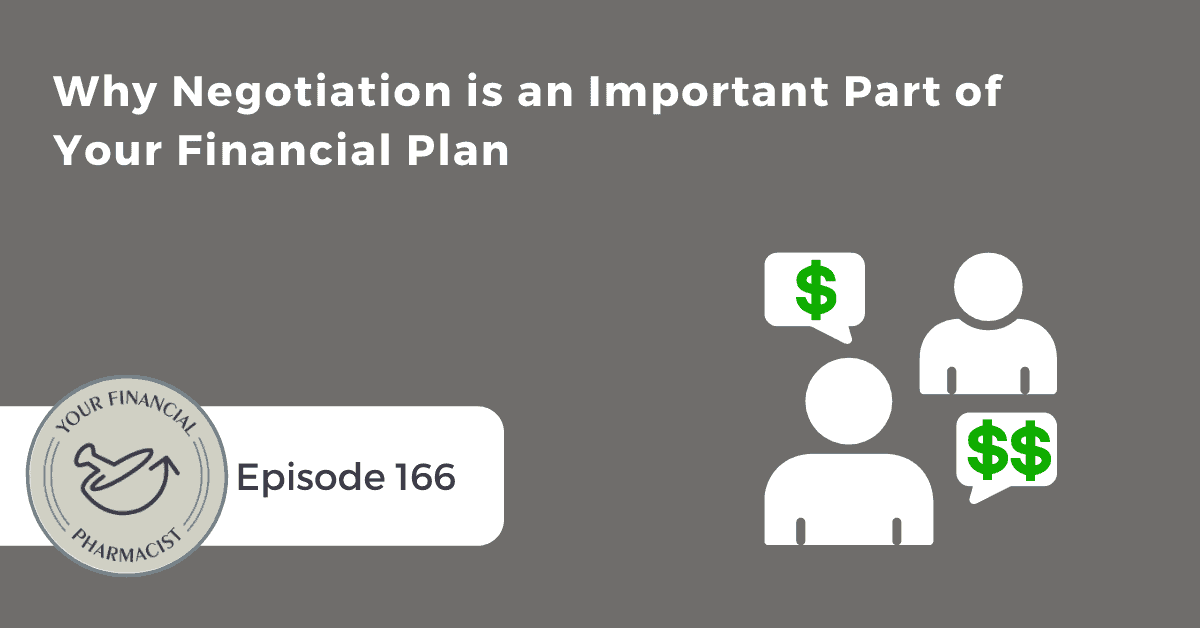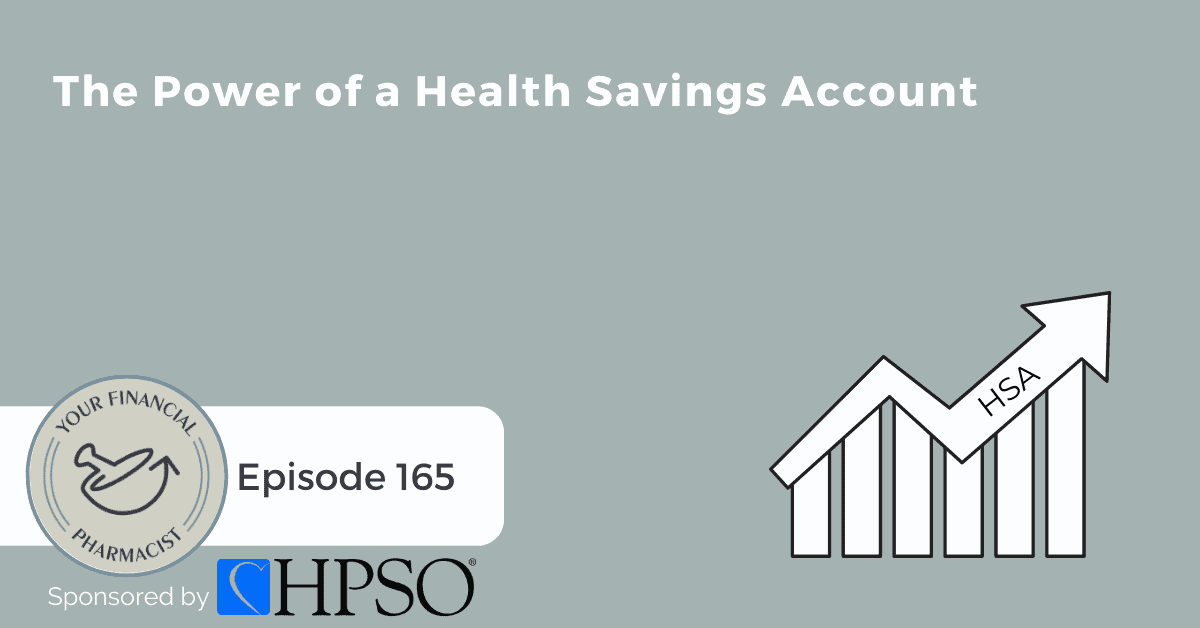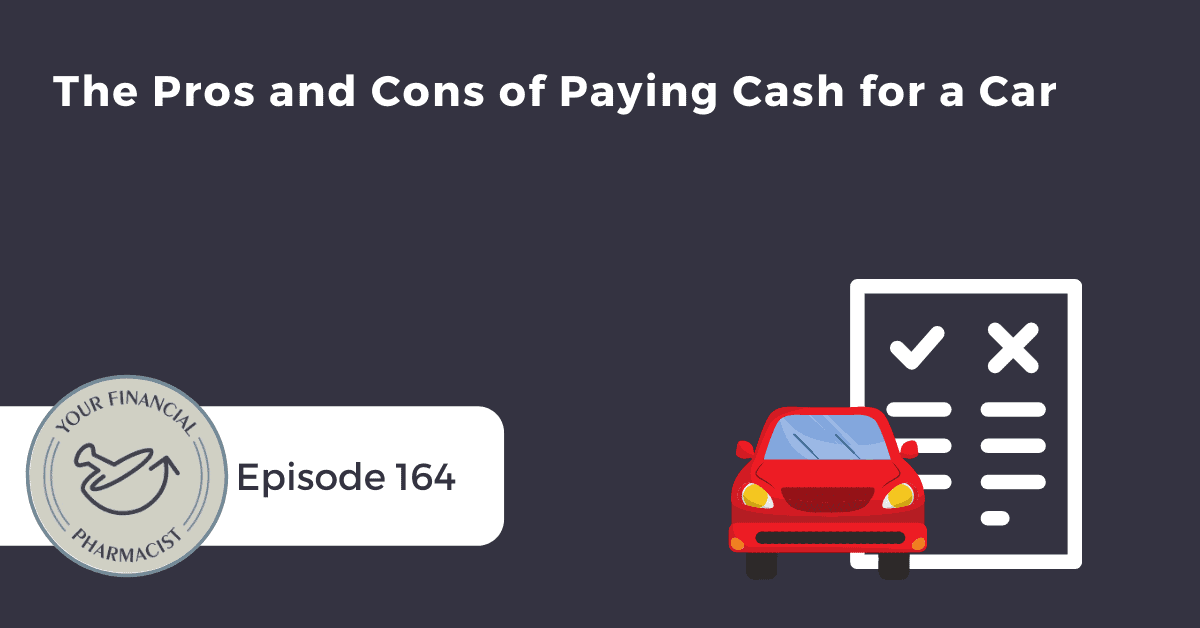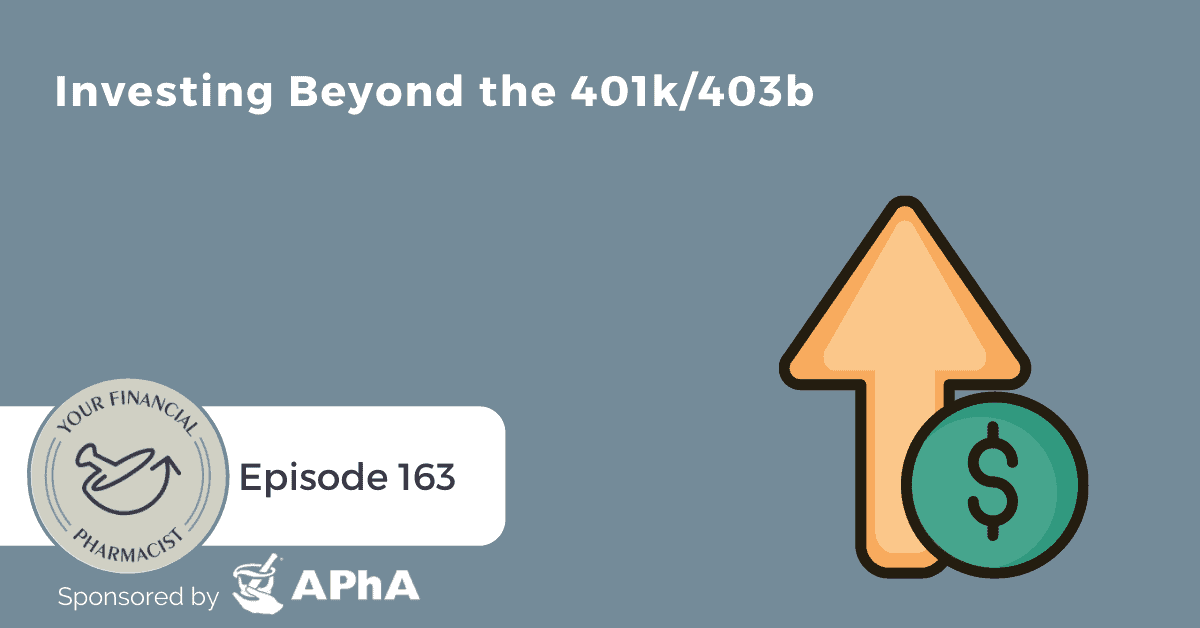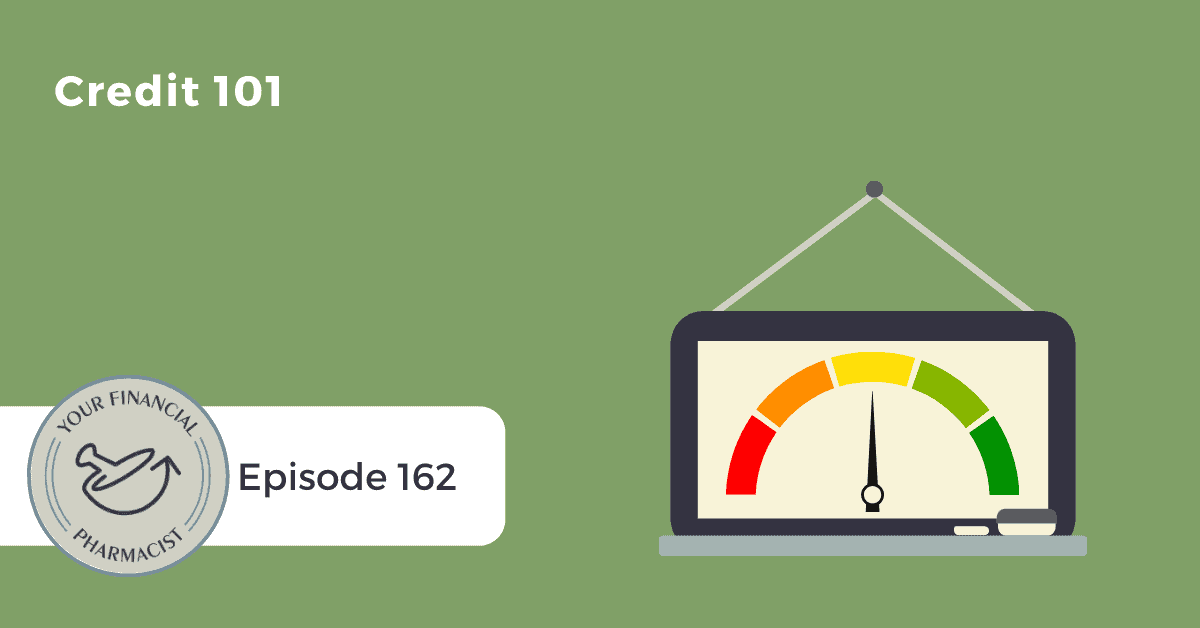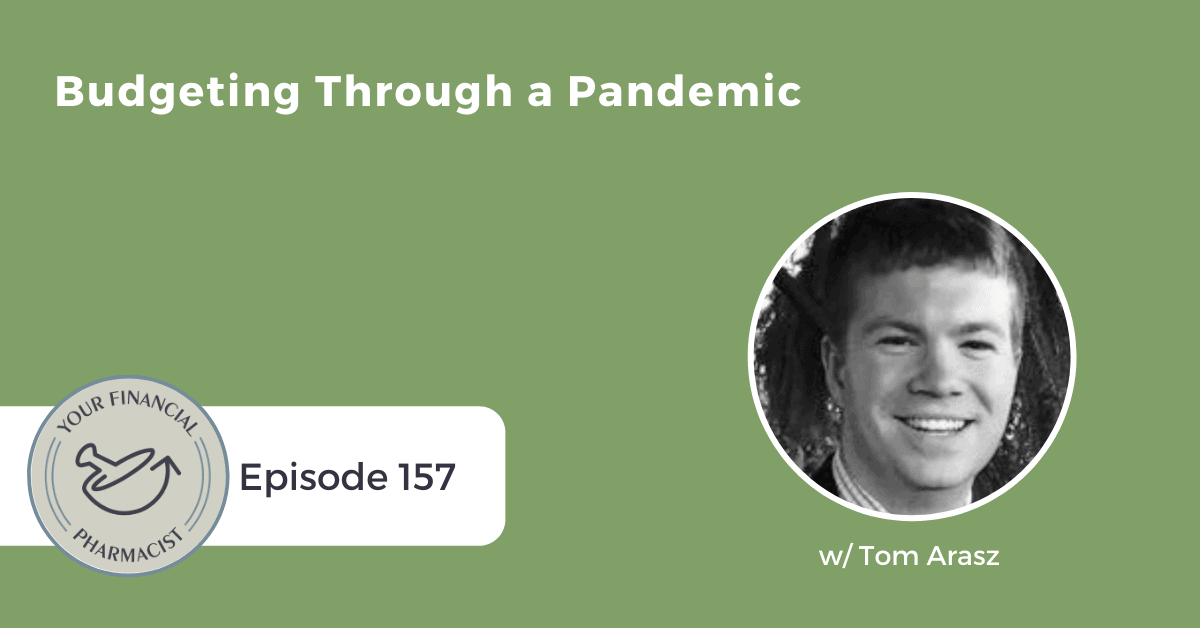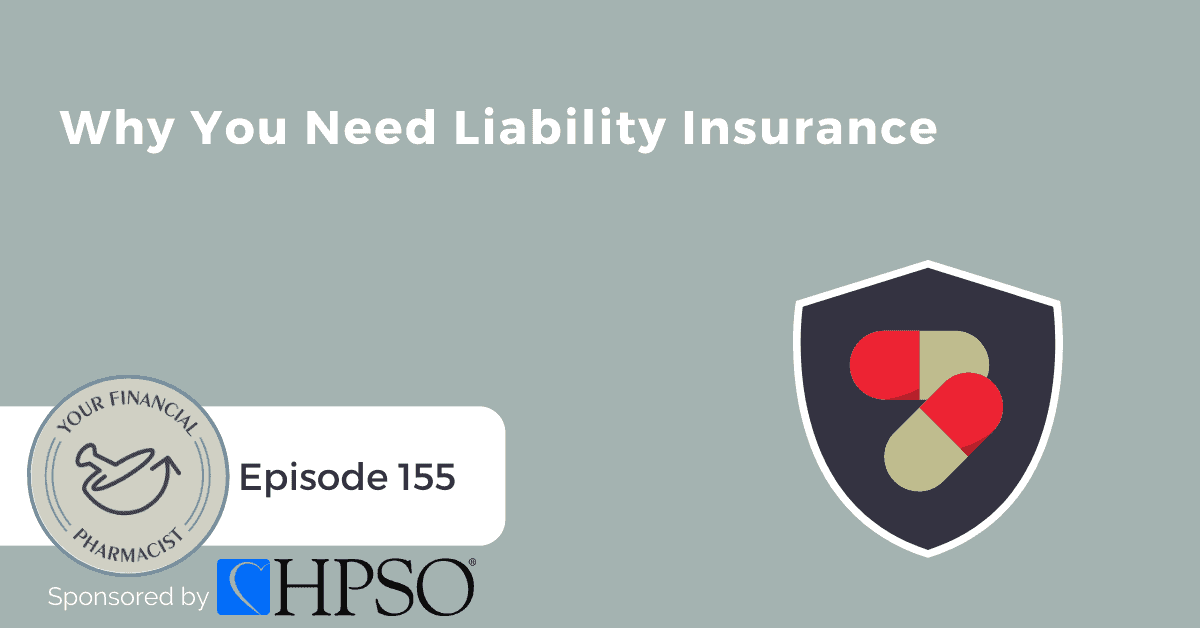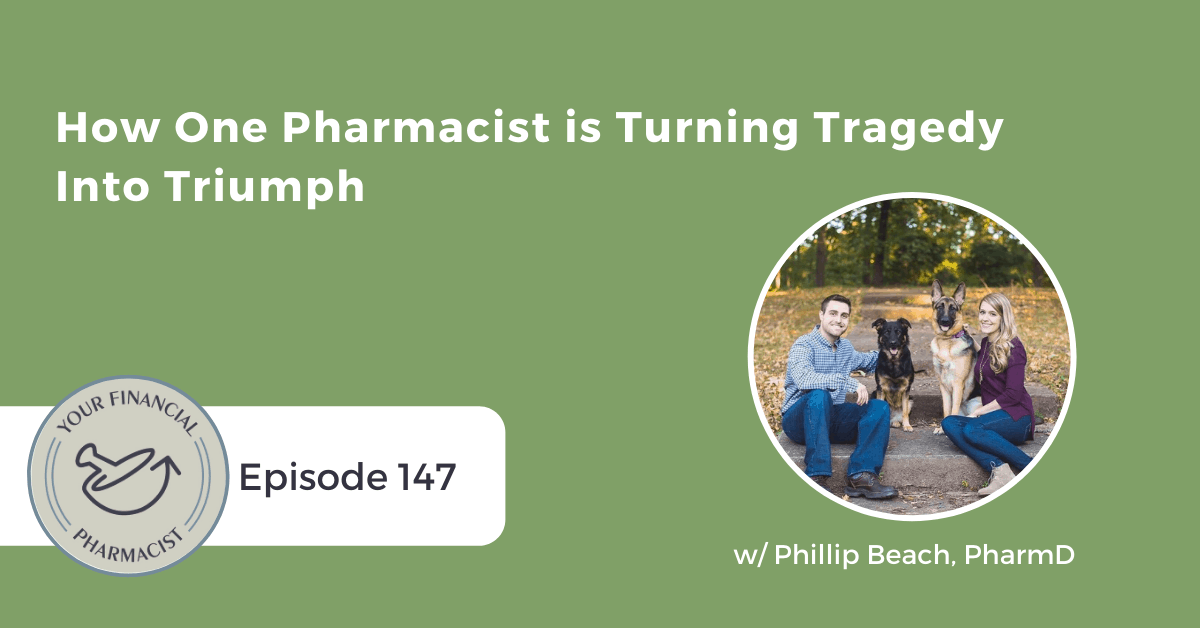Must Know Real Estate Terminology
David Bright, a pharmacist, pharmacy educator and real estate investor talks about why he views real estate investing as an important part of his financial plan, how he got started in real estate investing, and key real estate investing terms and concepts.
Summary
David Bright teaches at Ferris State University and loves his job, so the idea of getting into real estate investing didn’t come about as a way to retire early or to escape a career he didn’t enjoy. David’s family dabbled in real estate properties and he saw how those properties supported his family members’ retirement income, especially after the mortgage was paid in full. David and his wife decided to pursue real estate investing as a way to diversify their retirement income and to fund life experiences such as vacations along the way.
David shares his journey in real estate investing which began with a fixer-upper he and his wife purchased in 2009. They sold the property 5 years later for more than what they paid for it. They moved to Michigan and purchased a HUD foreclosure condo that they did some work to and were able to rent out when their family outgrew the condo. House prices increased in their town so they looked elsewhere for their next property and purchased a home in Muskegon, Michigan that they were able to BRRRR (buy, rehab, rent, refinance, repeat).
David also breaks down some key concepts and terms in real estate investing like the 1% rule, BRRRR, appreciation and short sale, among others.
Mentioned on the Show
- Compare Multiple Lenders and Refinance Your Mortgage with Credible
- BiggerPockets
- BiggerPockets Real Estate Investing Calculators
- Rich Dad, Poor Dad: What the Rich Teach Their Kids About Money that the Poor and Middle Class Do Not by Robert Kiyosaki
- BiggerPockets Podcast
- The Millionaire Real Estate Investor by Gary Keller, Dave Jenks and Jay Papasan
- Long-Distance Real Estate Investing by David Greene
- Real Estate Rookie Podcast
- Join the YFP Facebook Group
Episode Transcript
Tim Ulbrich: David, welcome to the show.
David Bright: Hey, thank you.
Tim Ulbrich: So long time in the making, you and I have known each other for a long time, all the way back to our PGY1 community pharmacy residency days here in Ohio. And we’ve had an opportunity to know each other further in the academic pharmacy circles and more recently with some real estate investing opportunities. So really excited to have you on the show to share some of your pharmacy journey but also some of your experiences in real estate investing as we really use this episode to highlight some of the key principles and terms of real estate investing. And we’re going to do that through some examples and stories. So David, before we jump into the weeds on the real estate investing part of the episode, give us some of your backstory in your pharmacy career.
David Bright: Absolutely. And thanks for having me on. This is a lot of fun, and it’s fantastic to see what Your Financial Pharmacist has done over the past few years to help people in their journey to financial freedom, financial independence and financial literacy. So yeah, as you mentioned, the pharmacy career story, we both went through the residency route. I had been involved in community pharmacy practice really since I was 16. One of my first jobs was a pharmacy technician in a drugstore at 16. And worked in drugstores through pharmacy school and community pharmacy residency, so that was really my passion. I love those opportunities to interact with patients and that kind of direct patient care where you’re having a lot of conversation, a lot of educational opportunity, a lot of that direct patient care that I really loved at a community practice. That led me to an academic position where some of those same kind of teaching aspects of community pharmacy certainly play into that academic pharmacy and also got to focus research on pragmatic implementation and improvement of non-dispensing pharmacy services that often took place in a community pharmacy or in am care. So that was a lot of fun. Spent five years at Ohio Northern and then since then, have taught at Ferris State University in Michigan.
Tim Ulbrich: Awesome. And got to give a shoutout to the Polar Bears. I actually hear from — as a Polar Bear alum myself, every once in a while, I’ll hear from other Polar Bear alums that say, “Hey, I love when you give the Polar Bears a shoutout on the podcast.” So here we are with another ONU connection. So great background, David, in terms of the community residency, the transition to the academic world, the work that you’ve done in advancing patient care services. And we’re going to approach this episode — we are both educators in terms of our work. Obviously I’m at Ohio State, you mentioned you’re working at Ferris State. But also just how we approach this topic, whether it’s financial education, literacy at large, here we’re talking about real estate. We are both teachers, and we know that we could talk about terms and go through them one-by-one and define them, but I don’t think that sticks well, right? We know that from our experience. So we’re going to use stories, we’re going to use examples, to really hopefully make some of these terms and concepts come to life. So David, first off, why real estate investing? You’ve got a full-time job, you’re busy. Why take on another job, side hustle, whatever you call it, in terms of the time it takes but also what this potentially means for your financial plan and your family?
David Bright: Yeah, that’s a great question. For me, I love my job. I love teaching Ferris, and so I’m not one of these folks that is looking to escape that and to do something else. Like I really love what I do. At the same time, I don’t want to be teaching at Ferris when I’m 85 years old. I hope to retire at some point. So my wife and I, we both had kind of extended family on either side of the family that have dabbled in owning a few rental properties and just kind of seeing that from a distance and hearing stories of how they bought a property or two in their 20s and 30s and with a 30-year mortgage, by the time they were retirement age, they had a paid-off rental house. They saw that as a way to diversify their retirement savings. And that just kind of stuck with me. It made a lot of sense as a diversification plan. And you know, in addition to that, one of the things they shared with me is that at the end of the month, if you can buy well, there’s hopefully a little bit of money left over after between the rent that you take in and the mortgage payment that you pay. And that little bit of money can fund other things. And my wife and I, we really value those experience, memory-making opportunities with the family. And so we thought, if there would be a little bit of that cash flow left over at the end of the month, we could save that up and help with the cost of vacation or other things. So not purely as a retirement play, but just kind of as a diversification for our overarching financial plan. So at the same time, you mentioned that some of this real estate work can be time-intensive if you let it. For me, I’m not remotely handy. Like I’m barely qualified to change a light bulb. Like you’re not going to find me swinging a hammer and doing things, like that’s just not me. I can’t do that. I’m a pharmacist. And so I’ve come to learn that there’s some things that I’m good and there’s some things where I’m not good at all. And so one of the nice things about real estate investing is that you don’t have to be good at swinging a hammer. Like you don’t have to be able to hang cabinets or do electrical work or any of the other things. Like by buying properties or looking at things that don’t need a ton of work, like what we’ve done, it makes it just a lot less intimidating when we’re hiring a lot of that work out. Like I’ve really not done much more than painting myself in the evenings, which is I think something that a lot of folks have done. So it’s been nice to find a way to diversify our retirement without it taking a ton of time.
Tim Ulbrich: Yeah, and one of the things, David, that I like about that — and certainly for folks that are handy, and I’m with you in the non-handy camp, probably even to a greater degree. You know, I’ve learned to accept my limitations and lean on my strengths, which are not being handy. But I think for folks that are, certainly if it’s something you enjoy and perhaps there’s some cost savings, great. But one of the things I’ve really enjoyed observing your path in real estate investing is that you really have done a nice job of building a system and a process that factors that in, you know? And really, I would argue then even becomes more scalable because it’s not dependent on you, which could work with one or two properties. But as you’re talking about longer term goals and a bigger portfolio, building a system and a property, analyzing deals and including things like property management fees, I’m working with contractors, and not all of that depending on you I think reminds me of how somebody builds a long-term successful business that is positioned for growth. So I think folks that are just starting, as you’re beginning this path, is there an opportunity to begin this path with some of that and some of the end in mind? And that may perhaps be minimizing some of your role and involvement in that. So David, you shared a little bit of the why real estate investing. So let’s jump into the how did you begin. So talk us through that first property. And then as you’re talking through that, I’ll pick up on some of the terms and concepts, and we’ll break some of those down after that.
David Bright: Yeah, definitely. Even when talking about properties in general, like it seems like there are very few people anymore that buy a property when they’re in their 20s and they live there for 60 years and then they sell it. Like most people over time are going to own several houses, at least most people in this podcast are probably going — or listening to this podcast — are going to own several houses over time. So I think getting in that mindset of what am I looking for in these. When my wife and I, we bought our first house in 2009, and when we did that, that was at a time in the market when those like house flipping were starting to come on TV, and it was like, oh, that would be fun. I could do that. Even though I totally — like no. But we thought we would look for something that was a little bit of a fixer upper. And looking back on it, a house that needed a little bit of paint probably wasn’t the definition of a fixer upper. But that was what we looked for. And so we bought a short sale property in 2009. And over the few years of living there, kind of like most people do, we fixed it up a little bit over time. We painted it, replaced some carpet, finished the basement, those kind of things. And that was what I would consider a live-in flip because we bought the house, we fixed it up while we lived there, and then when we moved to Michigan about five years later, we were able to sell it — in between the market improving a little bit and these fixes increasing the value — we were able to sell the house for more than what we paid for it.
Tim Ulbrich: OK. So the live-in flip, you had that for about five years, is that correct?
David Bright: Correct, yeah.
Tim Ulbrich: OK. And then I know we’re not attempting to play accountant or taxes, so disclaimer, this is not tax advice. You should consult your own accountant. But talk to us broadly about what does that mean for folks that are either in a live-in flip situation or considering a live-in situation? You mentioned being able to sell that, and I believe you sold it for tax-free profit. So is there a certain time period that folks need to be thinking about in terms of the time they’re in that house before they sell?
David Bright: Yeah, so again, I’ll repeat the disclaimer that a tax attorney or anything like that.
Tim Ulbrich: You taught me that disclaimer.
David Bright: Well, and even thinking through like if people listening to this in the future should certainly consult professionals at the time. But at least at the time that we were doing this, the advice that we got was that if you live in the property for at least a two-year period and then two out of the last five if you keep it as a rental or something like that, that two-year mark is when it becomes tax-free. So you’re right, the folks that are out in these house flipping, they’re probably paying quite a bit in taxes when they buy and then immediately resell these houses. But by doing it slowly, living in the house for a few years, that became essentially tax-free gain, which helped us to buy the next house.
Tim Ulbrich: It’s amazing, David, right? When’s the last house flipping show — when did you watch the last house flipping show that talked about the taxes they paid on the properties? Never mentioned, right?
David Bright: Yeah, exactly. Exactly.
Tim Ulbrich: So you mentioned also that you bought it via short sale. So I want to break that down for our listeners. What is a short sale?
David Bright: Yeah. A short sale, they seemed to be more prevalent back in that ‘08-’09-2010 kind of realm because a short sale is where someone has a loan on the property that the loan balance is greater than what they’re able to sell it for. And in that situation, a lot of people refer to that as being upside down on the property because you owe more than it’s worth. And so when you go to sell that property, your option is either to bring that extra money to closing or if you don’t have the money to bring to closing, then the bank can agree to accept whatever you sell it for as payment in full, and they consider that a short sale.
Tim Ulbrich: OK.
David Bright: So it’s presumably going to damage your credit pretty good because you’re not paying back the loan in full and all those kind of things. So I can’t really recommend it for people as a way to sell a house unless you’re really backed into a corner, which is the situation with the seller. He had bought this house as a brand new house just a few years before, so it worked out really well in the buyer side because we were able to get a practically new house that really just needed some kind of minor fixes, but that’s also the danger of some of these $0-down loans and some of those things that were going on back at the time.
Tim Ulbrich: And that typically — correct me if I’m wrong, David — that typically is a step before foreclosure, right? The short sale?
David Bright: Correct, yeah.
Tim Ulbrich: OK. So you mentioned the live-in flip in Ohio. You’re there for five years. And then you had alluded to your move up to the state up north not to be mentioned. So what was the game plan when you moved to the state up north? What did you guys do from there?
David Bright: Yeah, so when we were moving, we didn’t really know west Michigan at all. And so the advice that we were given is if you don’t really know the area, there’s a lot that you pay when you go to sell a house in terms of realtor fees and closing costs and all that. So if you’re not absolutely sure you want to be in that house for awhile, you probably don’t want to buy and then immediately move and buy again. So the advice we got was if you’re going to move to a new town, just rent for awhile, get to know the town, figure out where you want to be, and then buy.
Tim Ulbrich: Yep.
David Bright: And that made a lot of sense until we started looking at the math. And specifically in west Michigan, we were looking at homes that we could rent, and it was at the time in the neighborhood of even upwards of $2,000 a month to rent a house in the area where we wanted to be. But then we looked at there was a condo complex just barely outside the area where we wanted to be, and there was a three-bed, two-bath condo for sale for $55,000. And so we thought, two years of $2,000 a month seems remarkably similar to just buying this $55,000. So we thought, OK, we’re going to buy the condo.
Tim Ulbrich: Math sounds good.
David Bright: So we ended up in the condo instead of renting.
Tim Ulbrich: I’m assuming foreclosed property had some work to be done. Did you put work into that? And was that an additional investment?
David Bright: Yeah, this property, the short sale kind of got us warmed up to doing a little bit of work, and so we were looking for that same kind of thing. We found a foreclosed property that was actually a HUD home. So HUD homes are where the prior owner would have had an FHA mortgage. And when there’s a foreclosure on an FHA mortgage property, the government then takes it and sells it through the HUD process, through HUDHomeStore.com. The nice thing about a HUD foreclosure is that there’s some provisions in there to help owner occupants buy these. So they’re not swooped up by investors and that kind of thing. So as an owner occupant, we didn’t have mountains of cash and some kind of big track record of house flipping or anything like that to really go in and be competitive in that space. But we were going to live there. So we thought, this is a good opportunity to buy a foreclosure. It needed some drywall work and it needed all new appliances and new flooring and paint and some of those kind of things. So it was a decent step up but still didn’t require a ton of work. It wasn’t a super intimidating failed foundation and holes in the roof or anything like that like you see on TV. It was just a foreclosure that needed a little bit of work, and so we had a great agent that helped us buy the place. The agent knew some great contractors that we were able to hire to come in and do a lot of the work before we moved into it. It ended up being a great way to get into a much more affordable living situation than a $2,000 a month rent.
Tim Ulbrich: And for a moment, I want to put some of the pieces here together. You know, you disclosed earlier that you’re not necessarily handy. And even though this property, as you mentioned, didn’t require massive work, you still mentioned drywall, other things, had to work with a contractor. And I think just that step, right — I know for me hearing that, for folks that might be starting this for the first time, that alone seems somewhat overwhelming of, OK, I’m buying a property that needs work. I’ve got to find a contractor, I haven’t hired a contractor before. Who do I trust? Do I get multiple bids? How do I even navigate this? Am I going to get ripped off? So what advice would you have for folks — you mentioned an agent connection, maybe that’s a key people can pick up on. But for the folks who are looking to get some work done as a part of a model like this or another investing scenario, how can they approach that contractor relationship to find somebody hopefully that is trustworthy, that is quality, that’s reasonably priced, with the idea that perhaps it can continue to work with that person in the future?
David Bright: That’s a great question because I think we’ve all heard the stories of some contractor that did terrible work or took the money and didn’t show up or all these kind of horror stories, right? But we found the opposite. We found — like the quote that I heard recently is that rockstars know rockstars. And so by finding a fantastic agent, that fantastic agent had a library of different contractors. Like hey, you need a plumber? Call this person, tell them I sent you. They do fantastic work. I’ve recommended them several times, they’ve done work on my home. Everybody loves this plumber. Like great, that just got really simple. So we found a plumber that way. And same with someone that could do drywall and lay flooring. I’d asked that same kind of question, they said, “Hey, call this person. They’ve done work for us, they’ve helped other people.” So it got really easy by finding that first good person and then I’m just a big believer in referrals like that because yeah, you can Google and I don’t know what you’re going to find. But referrals are really powerful for us.
Tim Ulbrich: Yeah, and I think relationships, referrals, I think this is where the value of like local real estate meetups can come in. And Bigger Pockets does a great job of this, and you can find some in your community. But I’m with you, like if there’s somebody that I value and trust and have had a good relationship and they are able to recommend somebody, and then you’re starting that conversation with, “Hey, I know David, and David recommended you.” That all of a sudden builds some of the expectations of that continued good work on the part of the contractor. So I think that’s great input and advice. So you renovate your condo, David, what’s the next move then for you as it relates to your investing journey but also the personal living situation?
David Bright: Yeah, so we — at the point where we had lived in the condo for about a year, we were thinking that my kids were going to start school and we were thinking we probably want to be in a different school district and want to be a little bit closer to work, wanted to cut down the commute time and some of those kind of things. So while the condo was great for us for that season, it was a season where it wasn’t really as good of a fit anymore, so we were able to find a house and buy a house that was a better fit for us at that point, particularly after getting to know the area for some time. At that point, we thought, well, we’ve been observing family that have owned a few rentals, and it was good for them. We thought, it’s a pretty big step to go out and buy a rental property. It’s a much smaller step to just not sell a house and instead, try it out as a rental because we figured if it didn’t work out, we could always still sell the house. Like it just felt like about as low risk as we would ever have. And even a lot of the finishes and things that we did to the property, one of the recommendations that we got from, again, one of just the rockstar real estate agents that we worked with is when you’re fixing up properties, particularly at that kind of price point where for a $55,000 condo, you’re not going to go in and do $15,000 worth of super high-end granite countertops or something, you know? The quote that we heard was go Chevy, not Cadillac.
Tim Ulbrich: That’s great.
David Bright: That helped us just to kind of keep the budget in mind and some of that. But with that, at the end of all that fixing up, it was in pretty decent shape. We thought, you know what, let’s try it. Again, going back to the just busy world of a pharmacist, we didn’t really know where to start with all that, so that’s where you already mentioned Bigger Pockets, and I had found Bigger Pockets just kind of Googling around online looking for how do you rent out your condo, like trying to learn this. Found a few books and just tried to figure this out kind of in the evenings, talking with my wife. And we knew of a couple people that were looking for a place to rent, so we kind of started there, just friends of friends, just kind of putting the word out that we’re looking to do this. But after about a month, we couldn’t really find anyone to rent the condo. And we thought, this isn’t going well, and it’s probably because we’re trying to do this on the side. We’re just busy people, we just don’t have the time for it. So that was our point where — just kind of like with construction work, you don’t want me replacing countertops, you don’t want me like flooring, none of that. So we had found a professional to do that. And we just did the same thing here, we found a professional property manager that was, just like we’ve been saying, a recommendation from another rockstar, and we found a rockstar property manager. She came in and met with us and walked us through what the process would be like. She took some photos and a few days, she had a showing where she bought three people through the condo. Two of the three signed an application, one of the two put down a deposit immediately. And right away, we had a tenant moving into the property. And from a numbers standpoint, we were — the property manager was able to get $150 more a month than what we couldn’t get and the property manager fee to do that was $130 a month.
Tim Ulbrich: Winning.
David Bright: Yeah. Like she ended up doing all of the work and made us more money than us trying to do it all ourselves when we just clearly didn’t have time to do it ourselves. So it ended up being a fantastic fit.
Tim Ulbrich: That’s awesome. A couple things I want to break down there, and you didn’t mention the 1% Rule directly, but I want to bring that forward as I know people may have heard that before or if they’re working at a similar situation where OK, as you had mentioned, it’s easier to not sell than perhaps buy your first rental. What is that 1% Rule as folks are trying to just gauge — and of course this is market-specific and so many nuances, just like we talked about with many of the parts of the financial plan — but as folks are trying to determine OK, what might be rent? What am I currently — what’s the house worth? How do you even begin gauge roughly what might be a valuable rental situation that somebody might determine to keep the property and turn it into a rental?
David Bright: Yeah, the 1% Rule is one that I know we’ve talked about, and it’s stuck with me over time because I first heard it from my wife’s grandfather who told me that when he was buying — like he had heard this 1% Rule. When I was later Googling around on Bigger Pockets and I read it in another book that this 1% Rule. So it’s really stuck with me. And that’s where, just for round numbers, if you have a house that’s worth $100,000. If you’re able to rent it for $1,000 a month, 1% of the value of the house every month is rent. That’s a decent rule of thumb of the math will probably work so that your rent will cover the mortgage and then some of the additional expenses like the insurance and property manager, some of those things. And you’re right, it’s a really good disclaimer that that doesn’t work in all markets, it doesn’t work in all situations. But it’s a nice rule of thumb that you know, if there’s a pharmacist out there that has a $500,000 house that they can rent for $1,500, that’s probably not going to cover the mortgage.
Tim Ulbrich: No bueno. No bueno.
David Bright: Probably not going to work. But in our case, it was a $55,000 condo and so if it rented for a little over $1,000, that more than met the 1% Rule and that was kind of how the math worked out. At the end of the month, there was a couple hundred bucks left over between the rent that came in and then the mortgage that we paid, which is kind of for us was some safety. I know a lot of pharmacists are pretty risk-averse and so we thought if there’s more money coming in through the rent, at the end of the month, that will help to take care of what if the furnace goes out? Or what if the toilet gets clogged? Or what if all of the things that — like what if a lightswitch goes out? Like I can’t fix that. I have to hire someone to do that. So to have money for those kind of expenses that would come up — and like you said earlier, hopefully we could save some every month and then vacation or whatever using that.
Tim Ulbrich: Yeah, and we’ll get into in the future — again, focus here we want to introduce some terminology– but you’re mentioning some important pieces that I think when folks are analyzing a deal, I think it’s easy — almost like when people are looking at I currently rent versus what would my mortgage be and they forget to think about property taxes, homeowner’s insurance, what about all of the lawn equipment I need, taking care of my own, increasing utilities, the list goes on and on, right? Here, same type of thing, you know, as you’re looking at a real estate investment property, what are the things that you need to be thinking about in terms of repairs that need to be done, big projects over time, a roof, water types of issues, if you think about vacancies, all of those are factored in when you’re analyzing a deal. And hopefully the plan is that you’ve still got some positive cash flow after that. So David, we started with your live-in flip, we talked about the condo that you were able to do some renovations on and then turn into a rental. What was the game plan after that?
David Bright: Well that first rental was a great learning experience for us. And as much as the 1% Rule and some of the math — and certainly as pharmacists, we can get really nerdy into the math real fast, right. And there’s some great resources out there that can help that. You know, another shoutout to Bigger Pockets, they have some great kind of calculators and things that help you to make sure that you’re factoring in all of those expenses like property management, like the inevitable vacancy that you will have at some point, like the general repairs and the larger expenses, like taxes and insurance. But beyond all that, part of our goal with this condo was — and again, you and I are educators and we really just wanted some education in this. And we figured this is the best way to do it. So in our minds, it didn’t have to be a fantastic investment that would make all the metrics. It was really just how do we learn this to see if this is a fit for us as a part of our long-term financial plan? And that helped us to learn even other things like I didn’t know at the time that there were rental inspections and things. And once we hired the property manager, the property manager helped walk us through that and some of the local things that you need to know. And again, by bringing in a professional rockstar, like she was able to help make sure that we had all of our ducks in a row, that this was all done appropriately, correctly, safely, which again, pharmacists in health care definitely want things to be safe. And so that really helps. There’s a lot of learning that went on with that condo. And so after owning that for a couple years, it really seemed like it helped us to build some confidence that we could do this again. Over time, we started thinking about what point is it worth trying to do this again?
Tim Ulbrich: Sure.
David Bright: Again, this rockstars know rockstars? We were looking around at other places and trying to find people that were doing this and learn from other people. One of the things that happened in Grand Rapids, where we live, house prices just accelerated like crazy, which I think we had all kind of seen from about 2015-2020 that house prices have gone way up across the country. And certainly Grand Rapids is no exception.
Tim Ulbrich: Yeah, and I remember, David, seeing Grand Rapids like on “Top Places to Live in the Country,” raise a family, I’m guessing that contributed to it as well.
David Bright: Oh, for sure. Yeah. And then shoutout to Grand Rapids, it is a beautiful place. And as far as those memory-making experiences, we were out on the kayaks with the kids last night and just a lot of fun things to do around here. So I know growing up in Columbus, I also at one point referred to it as a state up north, but now that I live here, it’s really beautiful. So the good side was some property appreciation. The bad side was it was hard to find these 1% properties where it would make sense as a rental. We didn’t really want to go out and buy a $250,000 house that would rent for $1,000 or $1,500 a month. It just didn’t make sense. So a friend introduced us to the city of Muskegon, Michigan, which about 45 minutes or an hour from where we live. And little community out by Lake Michigan, great little place, and there were some properties there that met this 1% Rule. And so we were able to buy a house out there that between the short sale that we bought first and the condo, we’re getting a little more confident in being able to fix some things. This house needed a little bit more work, it needed a bathroom remodel, it needed paint inside and outside and flooring and some other fixes like that. But I guess we’re getting desensitized to it or something like that over time. And I think also, there’s some confidence in knowing other rockstars that can do a lot of this work. We were able to hire some contractors and buy a property. So a friend introduced us to what I’ve heard referred to as a tired landlord, someone that had rented out the house and just was done with it, you know? And I don’t know what the situation was, if they had an eviction or something like that that just soured them to the property, but they were just done with it and wanted out. And so we were able to buy it in still pretty dirty condition, it needed some work, and we were able to hire some contractors to go in there and fix it up. And so this property — just as an example from a numbers standpoint, we were able to buy a house for just under $30,000 and put roughly $15,000 into repairs. So we were all into it for a little over $40,000. And then at the end of that process, it appraised for just under $60,000. So that helped us because we were then able to refinance the property at 75% loan-to-value — and we can certainly walk through a lot of these terms in a little more detail — but 75% loan-to-value refinance. We were able to get back out of it almost every dollar that we had into the property from a purchase and a rehab standpoint.
Tim Ulbrich: That’s awesome.
David Bright: Yeah, that also felt like a way to reduce risk, again, pharmacist that doesn’t love a lot of risk, because then we didn’t have to save for years and years to make this enormous down payment on a house that might have a little bit of return every month. We didn’t have to have a lot of money into this property. But yet one more aspect of a long-term financial plan.
Tim Ulbrich: Well, and then if this works out as planned, here’s a great example, and we’re not trying to say this is all roses and cupcakes, you know, there’s a lot of education, a lot of relationship-building, a lot of things you did to make sure that this was a good deal and mitigate your risk, and there’s always things that could be unforeseen. So I don’t want folks walking away thinking, alright, let’s do this tomorrow. I mean, if somebody’s ready, awesome. But making sure we’re looking at both sides of the equation. So here though, David, this is a great example, I remember hearing about the BRRRR concept on Bigger Pockets, and it was one of those moments where I almost drove my car off the road. You know, one of those like Aha!, like oh my gosh, I just never being exposed to real estate investing, wasn’t even thinking this way, almost like reading “Rich Dad Poor Dad” for the first time. And then hearing this and the concept of getting all of your money or close to all of your money back out and being able to repeat that process potentially and grow the portfolio while you still have some built-in equity in the deal. So break that down for us briefly. What is the BRRRR model as folks may be hearing that for the first time? And I think the example property you just walked through is a great example of it.
David Bright: Yeah, so the BRRRR model — and I would agree, this is one of those things just kind of reading Bigger Pockets or part of my work here — for those that know Michigan, I live in Grand Rapids and Ferris State is located in Big Rapids, which is a city about, depending on where you live in town, it’s about 30-45 minutes away. So with that kind of drive, had some time to listen to some podcasts. I think a lot of folks listening to this podcast are probably in the same boat where you’re listening to things and trying to learn. And yeah, the BRRRR method also really struck me. And that’s that BRRRR: Buy, Rehab, Rent, Refinance, and Repeat. So the goal here is to buy a property that for whatever reason, whether you get it from a tired landlord or you buy it as a foreclosure or you buy it as a house that needs work or any or all of those, you buy it at some kind of discount because it’s something no one else wants to touch or something. You then rehab it, where you go through and you hire a contractor to do painting or whatever other work. At the end of that process, it is an attractive house where you can rent it out. So you can then rent it out, tenant, property manager, all those kind of things, refinance it at that point where you’re typically able with most banks to borrow 75% loan-to-value on what the property is worth. So not necessarily what you paid or what you paid plus your construction costs or anything like that, but what it appraises for that day. You can borrow 75% of the appraised value. So refinancing it allows you to get some of your investment back out of it and by doing that, if all the math works really well like this example — and like you said, not everything is rainbows and unicorns — but in this example, it did work pretty well where we had a little over $40,000 into it and it appraised just under $60,000, so 75% of just under $60,000 got us right just about all of our money back out of it.
Tim Ulbrich: And I think, David, this example really highlights well, you mentioned some of the things with loan-to-value, and if I’m understanding you correctly, with a 75% loan-to-value in a cash out refinance, you’re essentially then remaining 25% of the equity in the property. So you know, a lot of times you hear people talk about leverage with real estate investing. And for those of us that certainly want to make the most of an investment opportunity but also don’t want to find ourselves upside down on a mortgage, in this situation, you’ve got some built-in equity in the home so if something were to change market-wise or you run into a 2008 example of the market dips, you know, you’ve got some protection in there. You mentioned getting your cash back out in this deal, and obviously there’s fees as a part of the process that need to be considered so you can hopefully continue on with this. And then obviously from a rent situation, you want to make sure that it’s cash flow positive. So here, it checks all of those boxes. And I think, David, correct me if I’m wrong, but for those listening hearing this as one example and one path forward that they may consider, the rate limiting step here beyond just the understanding of the process and feeling comfortable and confident would be having that upfront cash to purchase the property, correct?
David Bright: Yes. Yes, because a lot of times, if you’re buying a house that is in pretty rough shape, it may be difficult or even impossible to get a traditional mortgage on that property. So certainly you see the folks on TV that are trying to flip these houses in California or something, they’re spending $1 million on these houses, that’s not something that I’m able to do.
Tim Ulbrich: Right?
David Bright: But you know, buying a house under $30,000 is a very different story.
Tim Ulbrich: Yeah, and I think that’s just something for folks to consider and I think why the first one and this example or this model may be the most difficult. But if you’re running this right, the numbers look good, once you’re able to save up for that first one. And obviously as we talk about all the time on the show, so important to reinforce here, real estate investing for those that are considering it should be looked at in the context of the rest of the financial plan. So where are you at with your student loan debt? Where are you at with your emergency fund? Where are you at with your retirement, credit card debt, other goals? And does this make sense, in this example, to be saving up a bunch of cash to purchase this property? And for some, the answer may be yes, and for others, maybe it’s no for the time being. So we have — and we’ll hopefully revisit, David, at a future point on another episode, I think we’ve thrown a good amount of information at the listeners, but you know, we’ve kind of dodged around some of the benefits of owning real estate and rental properties. Obviously the opportunity for cash flow, of course the appreciation of the properties, we haven’t talked about in detail the tax benefits, but certainly that’s a consideration, the fact that somebody else is essentially helping pay down the mortgage, being able through the cash flow to achieve other financial goals, perhaps even having an opportunity for diversification of income and if folks are predominantly saving in a 401k or a 403b where those funds are essentially locked down to 59.5, you’ve got some options here in real estate. And so we’ll come back and approach some of those more in the future. One of the things I want to wrap up with, David, is you mentioned Bigger Pockets as a resource and the Bigger Pockets calculator, which I certainly would attest to as well. Are there any other resources that you would recommend either a great book, a website, a community that really has been instrumental in your own journey that other folks may be able to apply as they’re getting started?
David Bright: Yeah, you know, we both reference Bigger Pockets, and I think podcasts are just really accessible for folks with a commute or things like that. So I would definitely recommend that. You’ve also mentioned the “Rich Dad Poor Dad” book, which I think really helped me to see, just see investing and a financial plan in a different way than I had previously thought, so that was another big resource that helped. And then “The Millionaire Real Estate Investor.” I believe that’s a Gary Keller book, that’s another one that was a little more nuts and bolts as far as how to look at properties, how to do some of the math and certainly pharmacy math nerd, I dove into some of that. And so that was helpful. I thought of the “Rich Dad Poor Dad” as more of a mindset book.
Tim Ulbrich: Yes.
David Bright: And “The Millionaire Real Estate Investor” as more of a tactical book. And so both of us, an audiobook here and there on the commute, and it was helpful there. I think that one of the other things that helped me to learn from just a mindset thing too is that I think some of this can certainly be a lot of — it can just be intimidating for people with a full-time job, busy life, family, kids, all those things. Like it can be certainly intimidating. And both of those books and then talking with other people in the area, other people doing this — going back to the rockstars know rockstars — talking with real estate agents and contractors, like one of the things that oddly enough, has helped us too is buying a house that’s an hour away.
Tim Ulbrich: Yeah.
David Bright: I’m not tempted to go drive by it and try to paint a room or something. Like I’m able to really detach from it and not let it take a bunch of time, which has been really, really helpful because I think that, again, typical pharmacist, little bit of a control freak. It’s hard to detach from some of these things, but it’s just been really healthy I think to do that and to trust property managers, to trust contractors, and yeah, just it allows it to be something that we can do as a part of our financial plan without it really taking a ton of time.
Tim Ulbrich: And I think that’s a nice recap of what we had talked about before briefly of I think one of the benefits of long distance real estate investing, whether that’s an hour or a different state away, is it really helps kind of force your hand in building some of the systems and processes that hopefully pull you out of the equation in some regard. Again, I’m thinking about this as somebody would be building a business and thinking about with the end in mind. The other resource — and actually one that just came to mind as I was just mentioning that Bigger Pockets does have a book on long distance real estate investing. So if folks are in a market where deals are harder to find and you’re looking at other areas of the country, I recommend that resource. Another one, David, I know Bigger Pockets just came out with I think it’s “The Real Estate Rookie” podcast, which I’ve enjoyed listening to. I know they’ve done so many episodes on their main show now and sometimes those stories, for new investors may seem just massive and overwhelming as people are talking about having 150 properties and their journey over the last 10 years. And I think that “Real Estate Rookie” podcast is a good segway introduction for folks that are just getting started. So David, really appreciate you taking the time to share some of your journey but also help break down these concepts. And we will link to some of the resources that we’ve mentioned in the show notes. And as a reminder to the listener, you can access show notes for this episode as well as any other episode, by going to YourFinancialPharmacist.com/podcast. Find the episode and in there, you’ll find a transcription of the show as well as a link to the resources and notes that we talked about. And don’t forget to join the Facebook group, over 6,000 members strong, pharmacy professionals all across the country, committed to helping one another on this path and goals towards achieving financial freedom. And last but not least, if you liked what you heard on this week’s episode, please leave us a rating and review on Apple podcasts or wherever you listen to your show each and every week. Have a great rest of your day.
Current Student Loan Refinance Offers
[wptb id="15454" not found ]Recent Posts
[pt_view id=”f651872qnv”]

